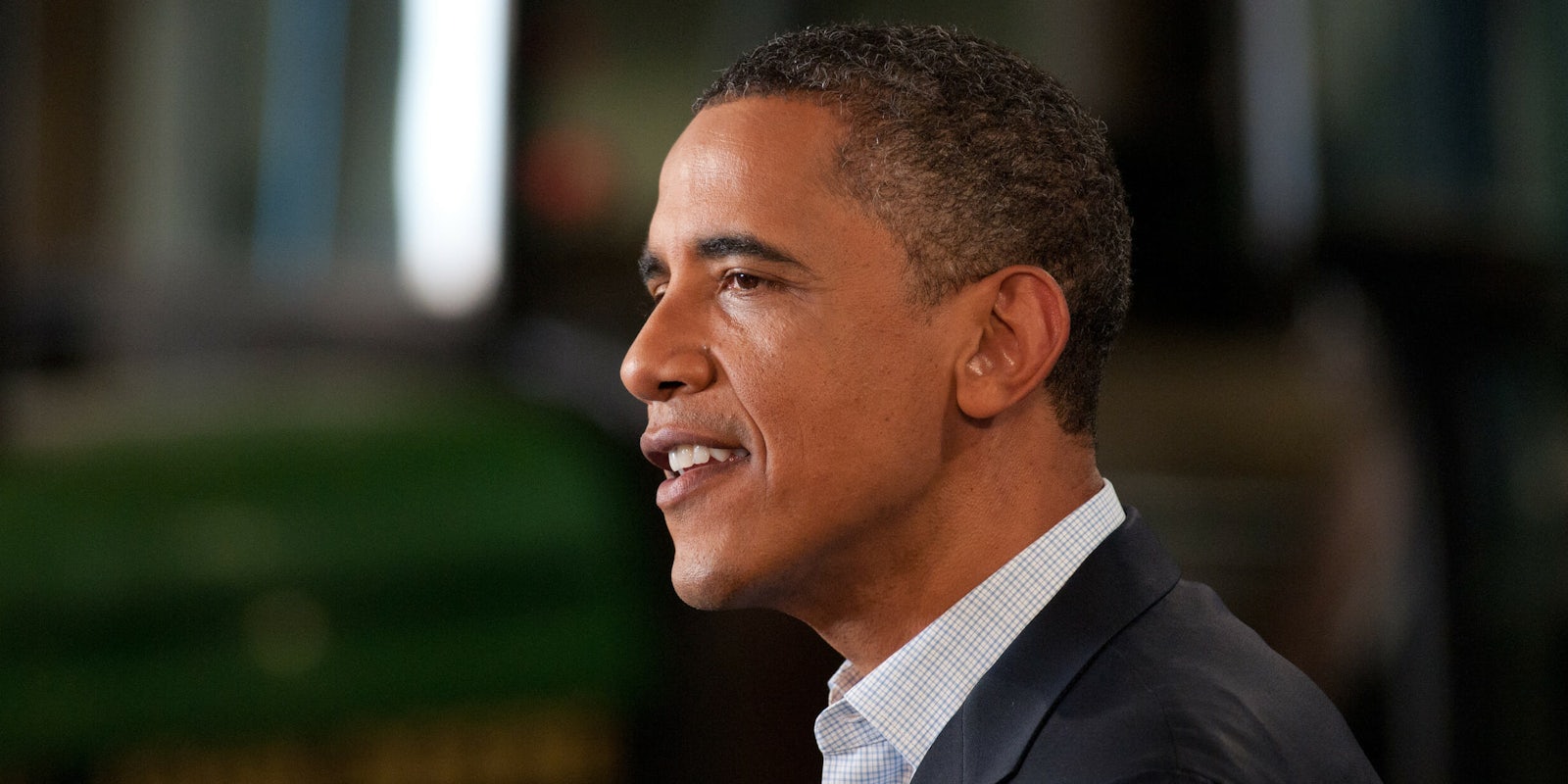A Democratic group backed by former President Barack Obama has raised more than $10 million to push back against Republican-crafted gerrymandering.
The National Democratic Redistricting Committee (NDRC) raised $10.8 million in the first six months of 2017, reports Politico. Led by former Attorney General Eric Holder, the group plans to use the funds to influence redistricting efforts and other electoral reforms.
“The NDRC’s significant fundraising in its first six months will allow us to take on gerrymandering and reform our electoral system,” Holder told Politico. “This will be done through our courts, at the ballot box, and through support of ballot initiatives that create non-partisan commissions and other electoral reforms.”
Gerrymandering—the process of drawing congressional district lines for one party’s benefit by picking which voters cast ballots for which seats—is one of the most important factors in the outcome of elections across the United States, which is what makes the NDRC’s efforts a must-watch.
Here’s what you need to know:
- Big money, big dreams: NDRC touts that the nearly $11 million came from some 10,000 donors, but most of the funds came from wealthy individuals, including director J.J. Abrams and his wife, actress Katie McGrath, who gave $125,000 each; $500,000 donations from businessman Fred Eychaner, a major backer of Hillary Clinton‘s; and hedge fund manager and Democratic mega-donor Donald Sussman.
- Tipping the scale: Gerrymandering is a game Republicans are winning. According to an Associated Press analysis, of the 4,700 state House and Assembly seats up for grabs in 2016, there were “four times as many states with Republican-skewed state House or Assembly districts than Democratic ones.” The AP also concluded that Republicans won as many as 22 seats in the U.S. House of Representatives due to gerrymandering.
- Bad odds: For Democrats to regain control of the House in 2018, the party’s candidates must win 24 seats. However, according to the Brennen Center for Justice, at least 16 of those seats are in districts heavily gerrymandered to favor Republican candidates. The NDRC, in other words, has its work cut out.
- Wildcard: The U.S. Supreme Court announced in June that it would hear a case on gerrymandering for purely political purposes. This decision could literally redraw the electoral map. Justices will hear oral arguments in Gill v. Whitford on Oct. 3.
- Long game: Gerrymandering happens after a new U.S. Census is published. The goal of the NDRC is to influence the next round of gerrymandering to better favor Democrats after the release of the 2020 Census.


